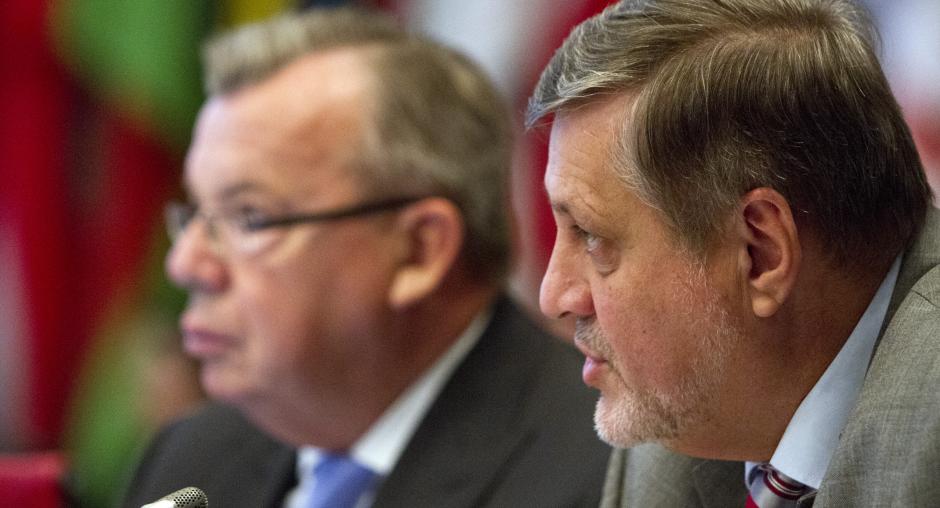Challenges linked to Afghanistan after 2014 in focus of OSCE meeting in Vienna

VIENNA, 9 October 2013 – Challenges to security and stability of Afghanistan, its neighbours and larger region after 2014, and how the international community, including the OSCE, can bolster support to the Afghanistan transition process, was the theme of today’s joint meeting of the OSCE Forum for Security Co-operation and the Permanent Council in Vienna.
Ambassador Yury Fedotov, Executive Director of the United Nations Office on Drugs and Crime, a key speaker at the event, said: “We cannot talk about the security and stability of Afghanistan and its neighbours without addressing the interconnected threats of drugs, crime and corruption.”
Illicit drugs, he said, is one of the major post-2014 problems that must be urgently addressed: “Afghanistan remains by far the leading cultivator and producer of opium in the world. Poppy cultivation and illicit trafficking of opiates threaten the health and well-being of people in the region and beyond. They fuel crime and corruption, undermine stability and can be used to finance terrorist activity.”
Ambassador Ján Kubiš, Special Representative of the UN Secretary General for Afghanistan referred to the recent UN Security Council’s debate on Afghanistan and mentioned areas where, despite setbacks and volatile situation, progress has been registered at this point of time - in building a credible and inclusive electoral framework, operation of the Afghanistan national forces, and strengthening of regional co-operation between neighbouring countries and Afghanistan.
Kubiš said the international support to the country must continue beyond 2014, and OSCE should contribute its expertise, including to help “reinforce the quality and credibility of the election”. Presidential and Provincial Councils elections are to take place in April 2014. OSCE previously deployed election support teams to the country in 2004, 2005, 2009 and 2010.
Ambassador Marcel Pesko, Director of the OSCE Secretary General’s Office, outlined OSCE’s engagement with Afghanistan at the political dialogue and project-related level. “Today the key question is whether we can do more to support Afghanistan’s transformation building on OSCE’s comparative advantages, accumulated experience and extensive potential,” Pesko said.
He added that OSCE could facilitate regional co-operation, offer its experience in implementing confidence-building measures between Afghanistan and its Central Asian neighbours, enhance capacity on small arms and light weapons, as well as conventional arms transfers, provide support on water and resource management. “We should always keep in mind that the role of the international community, including the OSCE, is to provide support for, not to impose, the Afghan transition process.” Pesko expressed his hope that the participating States of the OSCE would be ready to provide a strong political impetus to the OSCE’s engagement with Afghanistan and the wider region through adopting a political declaration at the Ministerial Council in Kyiv in December.
The joint meeting was co-chaired by Ambassador Ihor Prokopchuk of Ukraine, the Chair of the Permanent Council (PC), and by Ambassador Hubert Wurth of Luxembourg, the Chair of the OSCE Forum for Security Co-operation (FSC). The PC and FSC are main decision-making bodies of the 57-country OSCE meeting weekly in Vienna to discuss developments and security challenges in the OSCE area.
